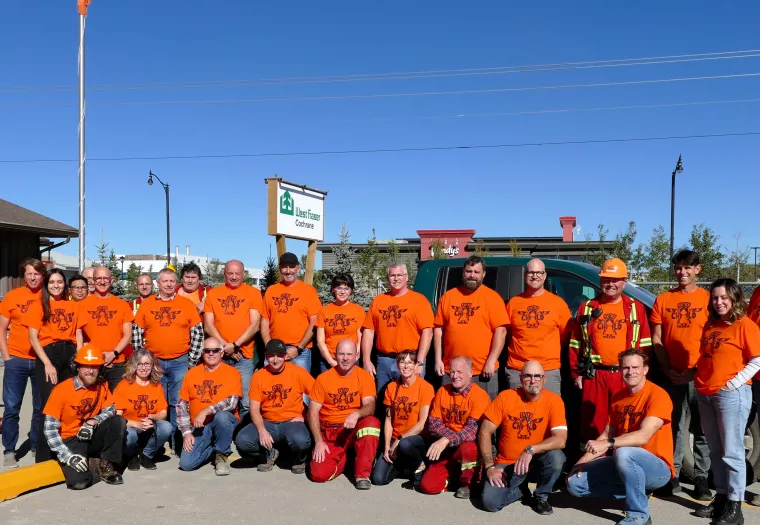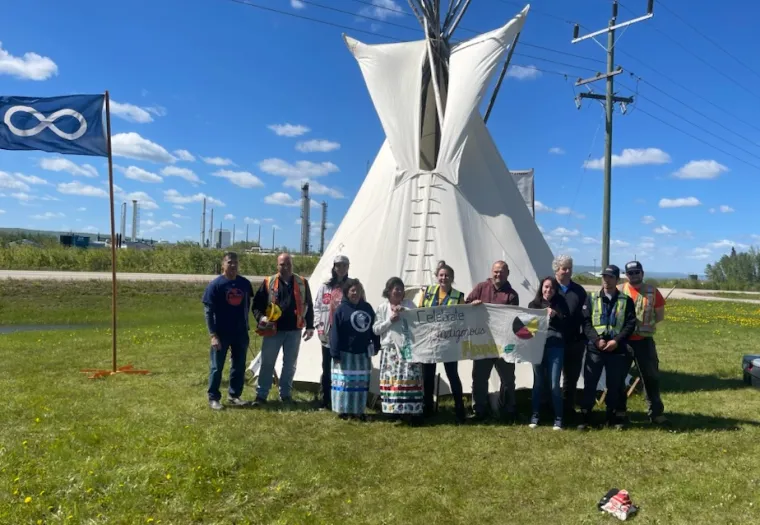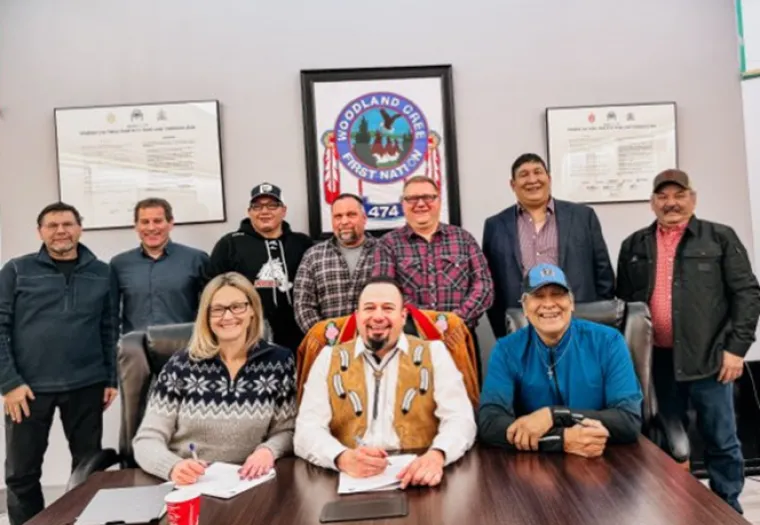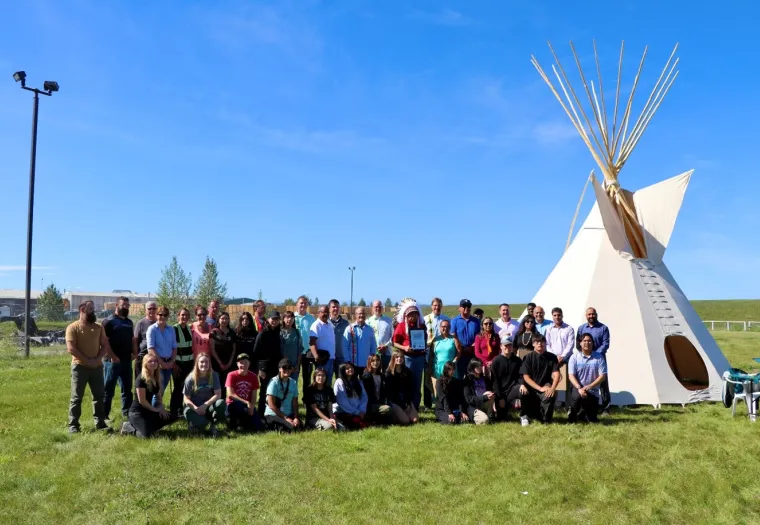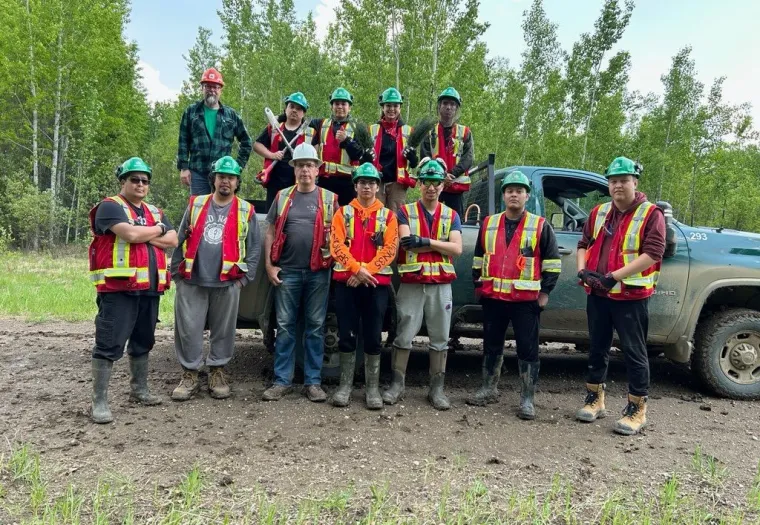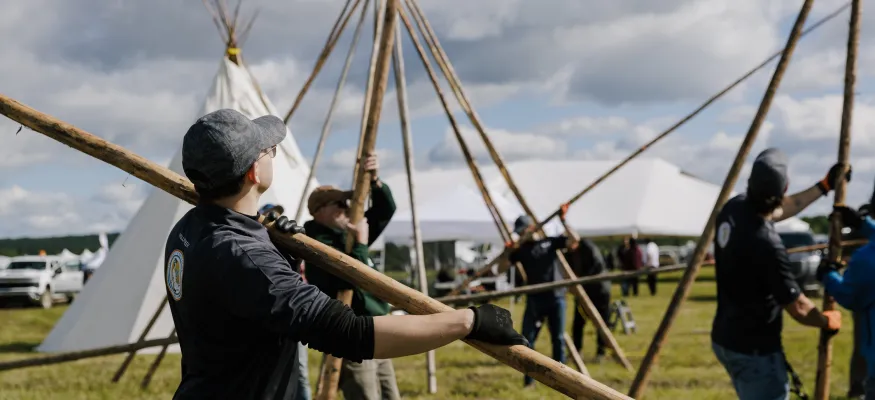
Indigenous Relations
Building Meaningful Relationships
Indigenous governments, communities and organizations that we engage with to build meaningful, long-term relationships
Indigenous-owned or Indigenous-operated logistics and vendor partners
of Canadian employees self-identify as Indigenous
communities with mutually agreed upon engagement processes
communities we are working with to integrate traditional land use into forestry planning processes
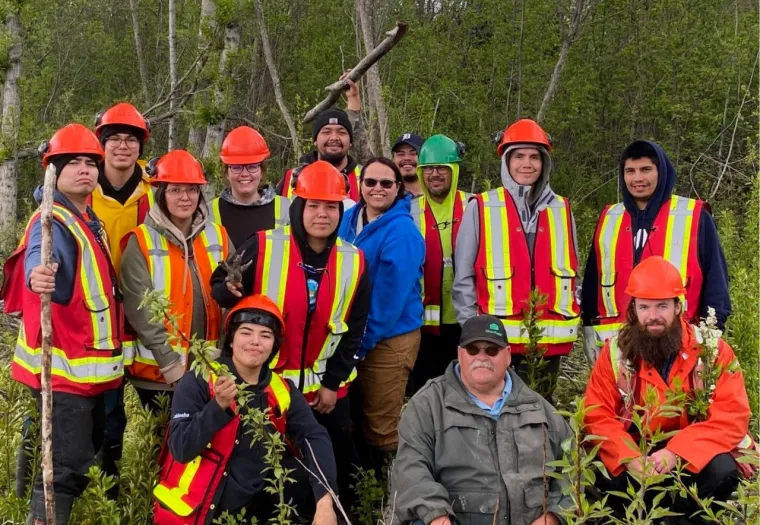
Our approach to building relationships includes listening, engaging in dialogue and incorporating traditional knowledge into our forest practices.
We work and engage with more than 80 communities on a regular basis, touching more than 100 Indigenous governments, communities and organizations in Canada. Working together through workforce, community and economic engagement, we generate mutual benefits and improve social and environmental outcomes for our communities.
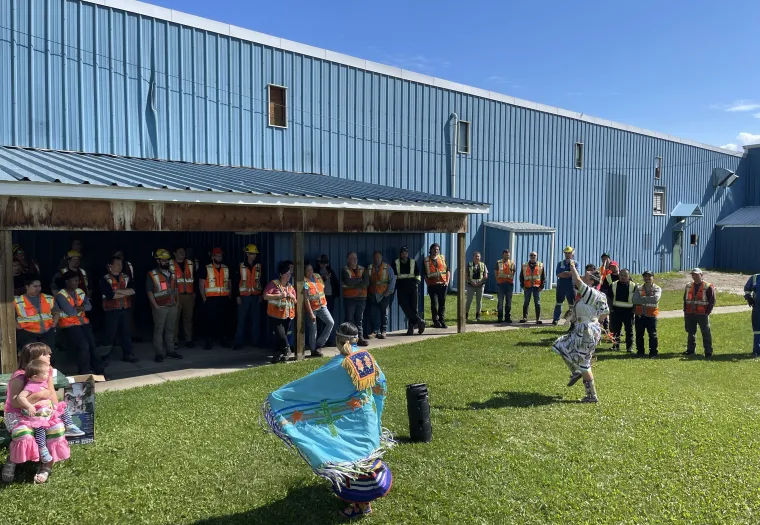
West Fraser seeks to uphold our commitments as stated in the Indigenous Peoples’ Policy and our Leadership Commitment Statement. Further, our practices and interactions are informed by the United Nations Declaration on the Rights of Indigenous Peoples (UNDRIP).
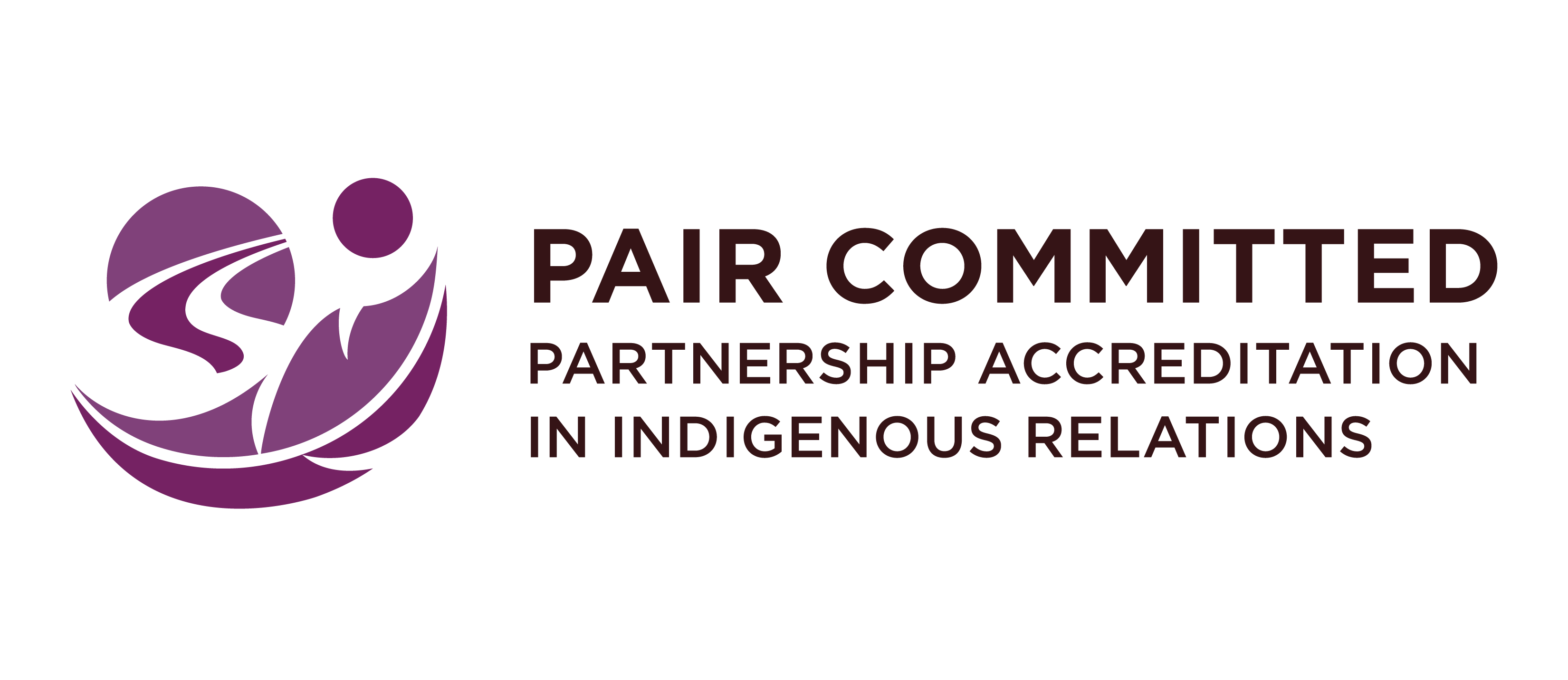
Partnership Accreditation in Indigenous Relations (PAIR), is a certification program led by the Canadian Council for Indigenous Business.
PAIR supports progressive improvement in Indigenous relations and provides a high level of assurance to communities as the designation is supported by independent and third-party verification of company reports. Through the PAIR certification process, we are refining focus areas, adopting best practices and expanding our understanding.
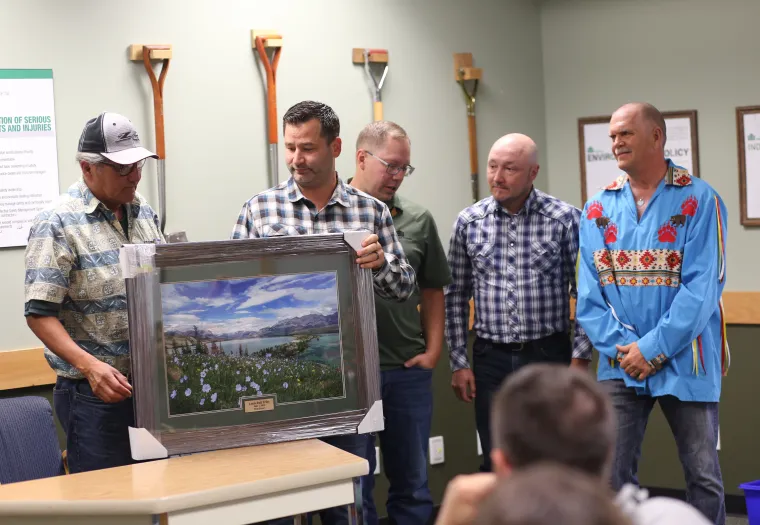
Aligned with the Leadership Actions pillar of PAIR certification, West Fraser’s leadership is embedding the company’s approach to positive and progressive Indigenous relations across the organization. This includes clear policies and commitments and developing a company culture through awareness and training.
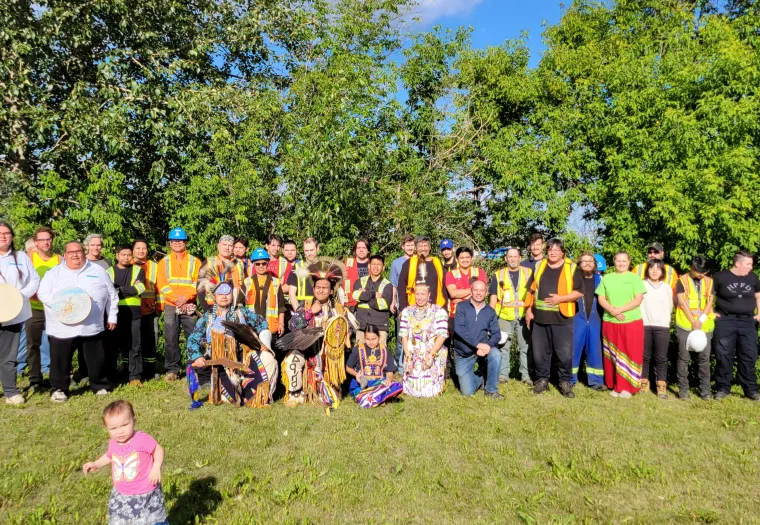
West Fraser is committed to achieving equitable representation of Indigenous peoples in the workplace. This involves recruiting and retaining Indigenous talent; providing scholarships and workforce readiness programs; promoting the mobility of Indigenous employees; providing cross-cultural awareness and/or cultural sensitivity training to employees at all levels of the organization; and more.
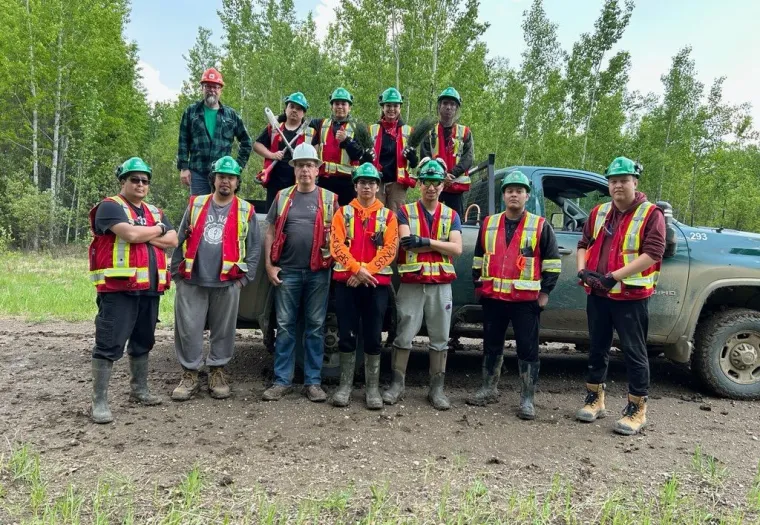
West Fraser is committed to increasing the participation of Indigenous peoples in our business through direct employment, the procurement of services and other forms of partnership.
We have mutually beneficial relationships with Indigenous-owned businesses. Through our procurement practices, including target setting and tracking, we examine opportunities to expand the scope of our business activities. Capacity building and mentorship also directly relate to sustaining, enhancing and fostering future business development.
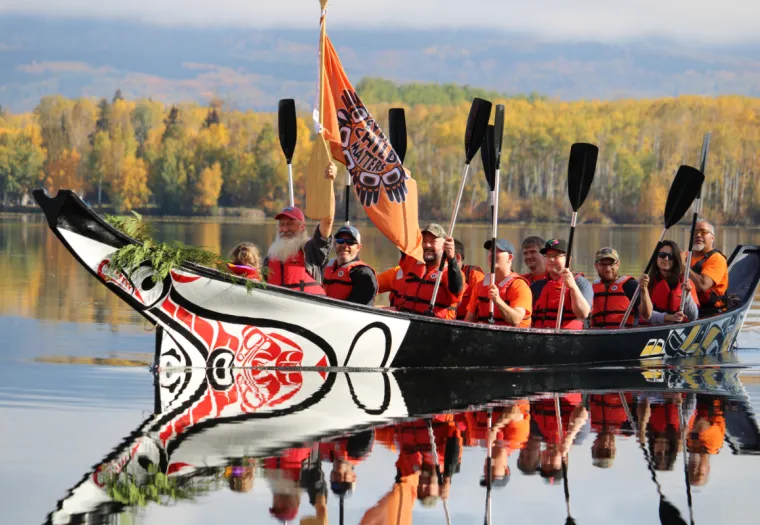
West Fraser seeks to advance our Indigenous relationships to achieve mutually beneficial outcomes to strengthen the generational value of the resources we manage. We regularly consult with more than 80 Indigenous communities on an ongoing basis, and we currently have 39 mutually agreed upon Indigenous community engagement processes in place.
Our approach to community relations is based on ensuring we have the resources and skills needed to develop and sustain positive and progressive relationships with Indigenous communities, groups and governments. We aim to listen, engage in dialogue and incorporate traditional knowledge into our practices. We have embedded the perspectives and rights of Indigenous Nations and community members within our Indigenous Peoples’ Policy and have established clear expectations to uphold these values.

